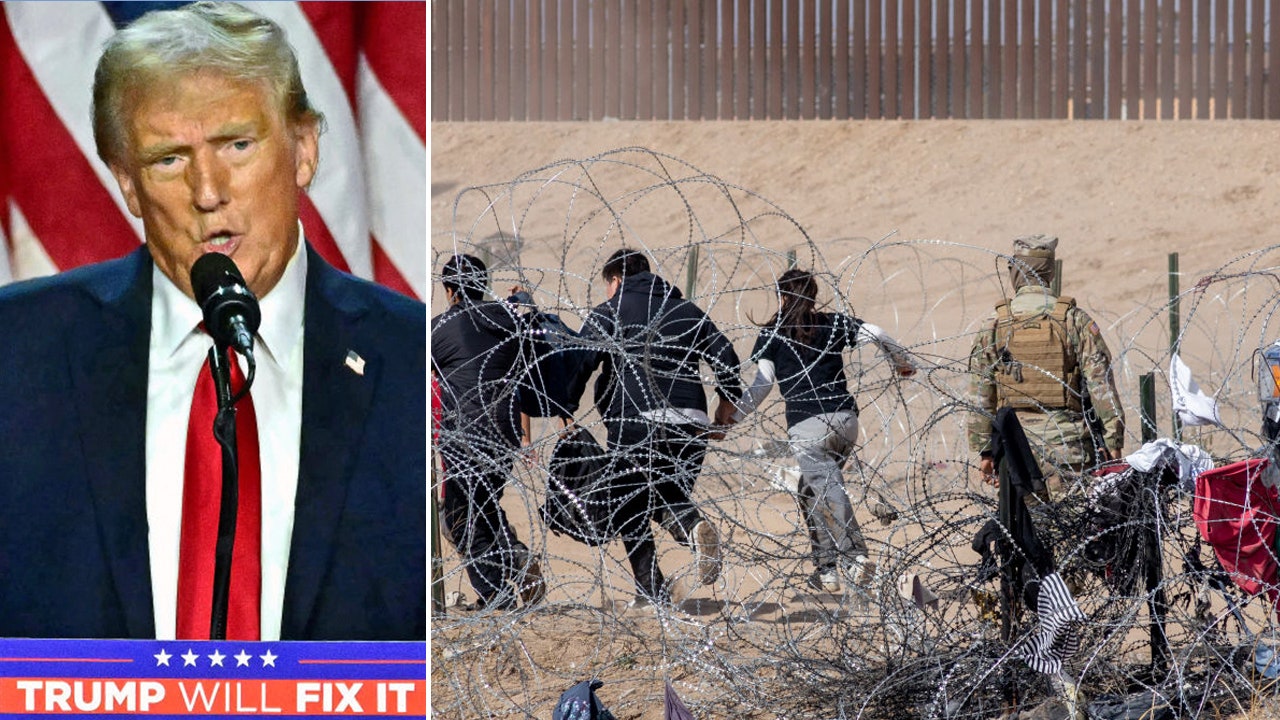In 2025, five key areas to monitor regarding immigration and border security will be:
Trump has pledged to execute a large-scale expulsion campaign.

In 2024, immigration and border security were major concerns for the Biden administration as they tackled the ongoing migrant crisis at the southern border. Additionally, migrant crime received significant attention in the media, and both issues were highly prioritized by voters leading up to the November election.
In 2025, the same topics are likely to continue being important issues. Here are five things to keep an eye on in 2025.

Does Trump deliver?
Trump has pledged to initiate a unprecedented mass deportation program in the upcoming year. He has indicated a willingness to declare a national emergency and utilize military resources to achieve this goal. His team has already begun exploring ways to increase detention facilities in metropolitan areas.
Thomas Homan, the Trump administration's border czar, has pledged to prioritize national and public security threats, but no illegal immigrant will be excluded. Despite a significant increase in deportations under the Trump administration until 2019, it is expected that the administration will resume this approach following the COVID-19 pandemic.
Trump will have an easier time rallying Congress for additional resources with Republican control of the House and Senate, but may face lawsuits against any policies he introduces.
A comprehensive bill like H.R.2, which was passed by the Republicans in 2023 and restricts asylum, is likely to be advocated for at the congressional level.
Will Democrats resist?
Officials in various Democratic states have already announced their opposition to the deportation drive by the Trump administration. Denver Mayor Mike Johnston stated recently that he was ready to be imprisoned due to his opposition to Trump's deportation plan.
Governors in Massachusetts, Illinois, and Arizona have declared that they will not cooperate with deportations.
Democratic officials may not help the administration, but it will be interesting to observe whether their lack of assistance becomes active resistance.

Mexican co-operation?
The southern border of Mexico plays a crucial role in securing the U.S.-Mexico border, with lower levels of encounters at the U.S. border often coinciding with crackdowns at Mexico's southern border.
In 2024, the number of migrants at the border decreased after Biden administration officials met with Mexican officials in December 2023. The two countries had previously agreed to allow migrants into the U.S. via parole programs, and for Mexico to accept a certain number of non-Mexican returns from the U.S.
With Trump's pledge to abolish those programs, Mexico's level of cooperation remains uncertain.
Trump has threatened to impose a 25% tariff on Mexican goods if they do not stop the illegal immigration across the border. This is a strategy that Trump used to secure Mexico's agreement to expand the remain-in-Mexico policy in 2019.
Will Mexico maintain low northbound traffic or reduce enforcement? This question will be answered in 2025.
What will Congress do?
Immigration reform and border security have been a persistent challenge for Congress, frustrating multiple administrations. Despite the efforts of President Biden and former President Obama to pass comprehensive immigration reform, and President-elect Trump's push for funding for the wall at the southern border, Congress has yet to reach a consensus on these issues.
The House and Senate are currently controlled by Republicans, but with narrow margins. As a result, it is uncertain if President Trump will receive a comprehensive border bill similar to the one passed by the House Republicans in 2023.
The success of Trump's mass deportation plan will depend on Congress's response to his requests for additional funding. The level of Congress's action will determine the effectiveness of the effort, along with increased security measures at the southern border to prevent migrants from entering the U.S.

Legal immigration?
The H-1B and H-2A visas, as well as humanitarian parole, are likely to be key issues in the next administration, with some advocating for additional restrictions on their use.
The administration is likely to re-implement its public charge rule, which limits legal immigrants from receiving green cards if they are reliant on certain forms of welfare and are deemed likely to be reliant on welfare if they receive permanent residency. Additionally, the administration is expected to reduce the number of people coming in via parole, which was significantly expanded under the Biden administration, and is also expected to reduce the annual refugee cap.
The future administration, led by President-elect Trump, and including billionaire Elon Musk, have stated that they desire more immigration, but only legal immigration.
In October, Trump stated that he desired a large number of individuals to enter our country, but only through legal channels.
As 2025 approaches, it will become increasingly clear which side of the argument regarding lower levels of immigration, including legal immigration, will prevail among Trump's base.
politics
You might also like
- California enclave announces it will cooperate with immigration officials and the Trump administration.
- Danish lawmaker urges Trump to abandon Greenland acquisition plan.
- Now, the Dem who labeled Trump an "existential threat to democracy" is obstructing his nominees.
- The lawyer for Hegseth criticizes the "dubious and inaccurate" testimony of his ex-sister-in-law.
- The House GOP outlines a plan to improve the healthcare system, emphasizing its impact on national defense.



















